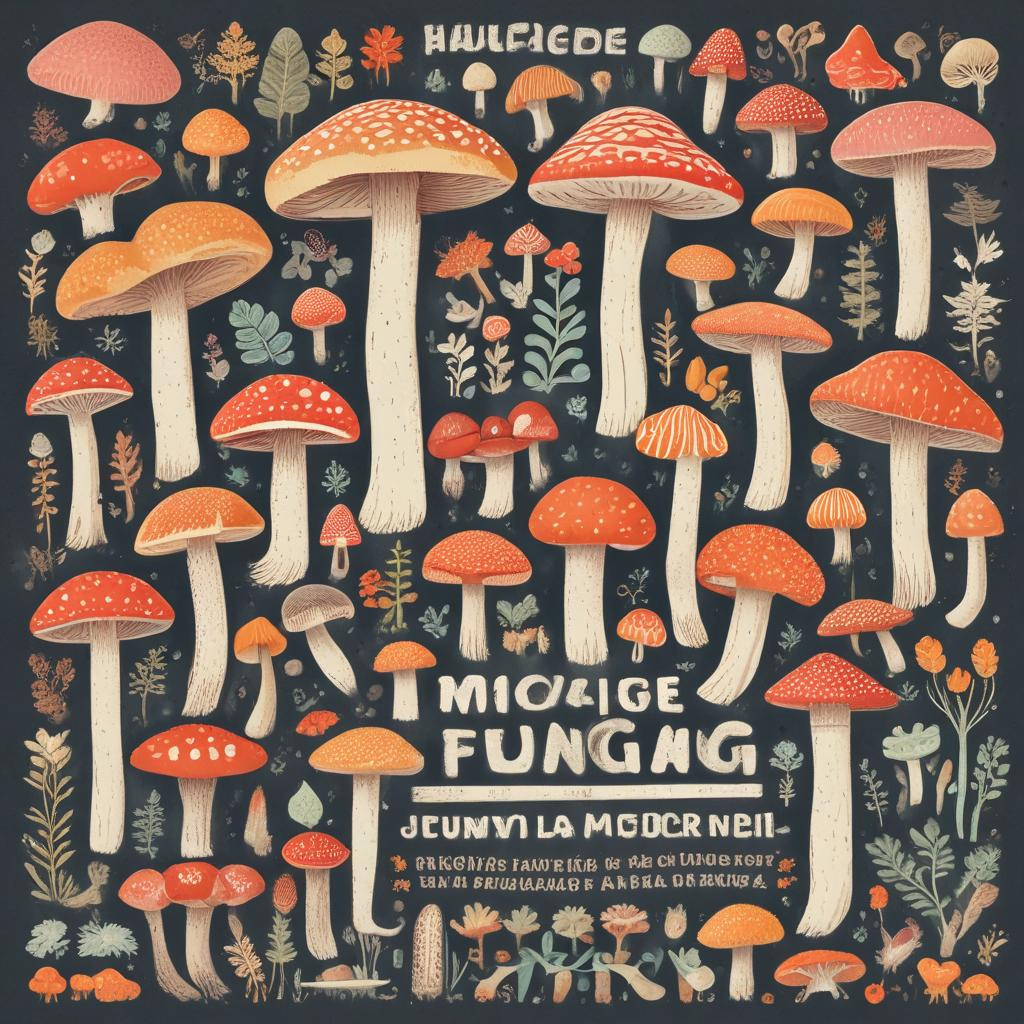What roles do fungi play in the ecosystem, and how does this relate to human health?
Fungi are critical components of the ecosystem, performing essential functions that directly and indirectly impact human health. They decompose organic matter, recycle nutrients, and form symbiotic relationships with plants, enhancing their growth and resistance to disease. These processes ensure the stability of ecosystems on which humans depend for food, clean water, and air. Additionally, fungi are used in bioremediation processes to clean up environments contaminated with toxins, which can reduce the prevalence of harmful chemicals that might otherwise pose a risk to human health.

Can you explain the beneficial impacts of fungi on human health?
Certain fungi have beneficial impacts on human health, primarily through their use in medicine and food. Penicillin, the world’s first antibiotic, was derived from the Penicillium fungus, heralding a revolution in medical treatment by providing a means to effectively combat bacterial infections. Other fungal products like cyclosporine, a potent immunosuppressant, and statins, used to lower cholesterol levels, are vital in modern medicine. In the culinary realm, edible fungi like mushrooms are highly nutritious, offering a good source of vitamins, minerals, and antioxidants, promoting overall health and preventing diseases.
What are some common fungal diseases that affect humans?
Humans can be affected by a variety of fungal diseases, commonly known as mycoses. These range from superficial infections like athlete's foot and ringworm, which affect the skin, nails, or hair, to more severe invasive infections such as aspergillosis or cryptococcal meningitis. These invasive infections typically occur in individuals with weakened immune systems and can be life-threatening. Respiratory conditions such as farmer’s lung and asthma can also be exacerbated or triggered by exposure to fungal spores in the environment.
How significant is the threat of antifungal resistance?
Antifungal resistance is an escalating concern, similar to the issue of antibiotic resistance in bacteria. It represents a significant challenge in treating fungal infections, leading to longer illness durations, increased healthcare costs, and higher mortality rates. The overuse and misuse of antifungal medications in agriculture and healthcare contribute to this problem, as does the limited availability of effective antifungal drugs. This resistance can make fungal outbreaks harder to control and increase the spread of resistant strains, posing a growing public health threat.
What can be done to minimize the risk of fungal infections in individuals and communities?
Minimizing the risk of fungal infections involves multiple strategies, focusing on both individual hygiene and broader public health measures. Personal precautions include maintaining good hygiene, keeping skin clean and dry, and avoiding shared items such most efficiently as towels or footwear in communal areas. Public health strategies can involve improving sanitation and housing conditions, particularly in settings prone to moisture and mould growth, such as hospitals and other healthcare facilities. Additionally, appropriate use of antifungal medications and careful monitoring of vulnerable populations, like immunocompromised individuals, are crucial.
How are researchers using fungi to develop new treatments for diseases?
Researchers are actively exploring the diverse genetic and metabolic capabilities of fungi to develop new treatments for diseases. For example, recent advances include exploring fungal metabolites for anti-cancer properties or for the treatment of neurological conditions such as Alzheimer’s. Fungi are also used in bioengineering to produce vaccines and other therapeutic proteins. The field of mycotherapy, which investigates medicinal properties of mushrooms, is rapidly expanding, with studies demonstrating promising results in boosting immune system function and potentially reducing the risk of chronic diseases..
In what ways are fungal infections becoming a more significant concern with the advent of climate change?
Climate change is altering fungal distributions and life cycles, which can increase the incidence of fungal infections in both plants and humans. Warmer temperatures and altered weather patterns can expand the habitats of pathogenic fungi, allowing them to infect new areas and populations. Additionally, climate-related phenomena such as floods and hurricanes can create environments that foster fungal growth, such as increased moisture levels, further complicating control and prevention efforts. These changes necessitate a greater emphasis on monitoring and research to adapt public health strategies effectively.
Can you highlight some recent breakthroughs in fungal research that impact human health?
- Development of novel antifungal agents that target specific fungal structures without affecting human cells.
- Advancements in genomics have led to better understanding of fungal pathogenicity, enabling more effective treatments and preventive measures.
- Use of AI and machine learning to predict fungal infections and outbreaks, enhancing response times and treatment outcomes.
The impact of fungi on human health is complex and multifaceted, influencing everything from medicine and food to public health strategies. As researchers continue to unlock the secrets of fungal biology, the potential for new and innovative applications in the field of health and medicine appears increasingly promising.


.jpg)






.jpg)



0 Comments